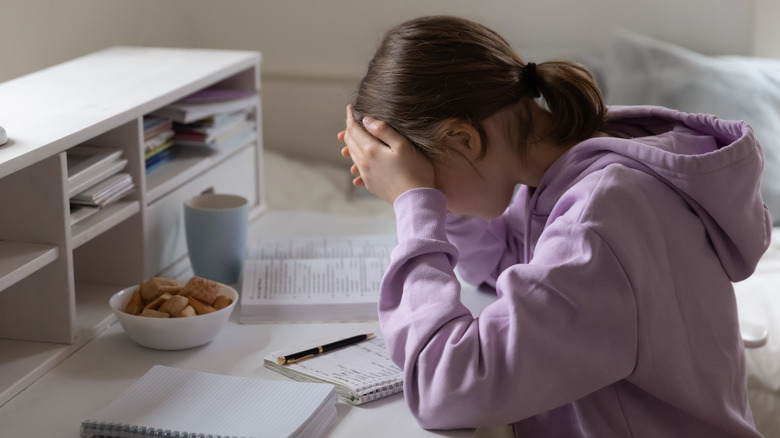How Students' Mental Health Declined As The Pandemic Continued
COVID-19 changed life around the world as we know it. From how we approach our health, our careers, and our relationships, the pandemic affected almost every aspect of our lives. This especially rang true in regards to our mental health and well-being.
Stress, anxiety, and fear were at the forefront when it came to the pandemic's effect on our mental and emotional health. The Mayo Clinic reported that for adults, there was a significant increase in anxiety, depression, insomnia, and substance abuse thanks to fears about the virus and the isolation we all experienced due to social distancing measures.
Students, in particular, were affected by the disruptions caused by the pandemic, as a new blueprint for schooling and socializing began to take shape. Upon examination of the pandemic's effects on students, the Centers for Disease Control and Prevention (CDC) has recently come out with startling new research regarding how COVID-19 impacted students' mental health (per U.S. News & World Report).
The link between the pandemic and teen mental health
According to data recently published by the Centers for Disease Control and Prevention (CDC), teen mental health took a sharp dive during the COVID-19 pandemic. Between June and July of 2021, over a third of 7,700 surveyed students in grades 9-12 in the United States reported poor mental health during that time. Nearly 45% of those students reported feelings of hopelessness in the year before the survey, with almost 20% reporting suicidal ideations and 9% actually attempting suicide (via CDC). Survey findings also showed that students who felt more connected with teachers and peers were less likely to experience mental health problems.
The 2021 CDC survey also highlighted the mental and emotional damage inflicted on teens by disruptions in home life during the pandemic. Of those surveyed, 55% of students reported that they had experienced emotional abuse at home, noting specifically that caregivers insulted or swore at them. Around 10% of students reported physical abuse by a parent or caregiver, through beating, kicking, or physically injuring them in some way.
Dr. Debra Houry, the CDC's acting principal deputy director told U.S. News & World Report, "These data echo a cry for help. The COVID-19 pandemic has created traumatic stressors that have the potential to further erode students' mental well-being. Our research shows that surrounding youth with the proper support can reverse these trends and help our youth now and in the future."


